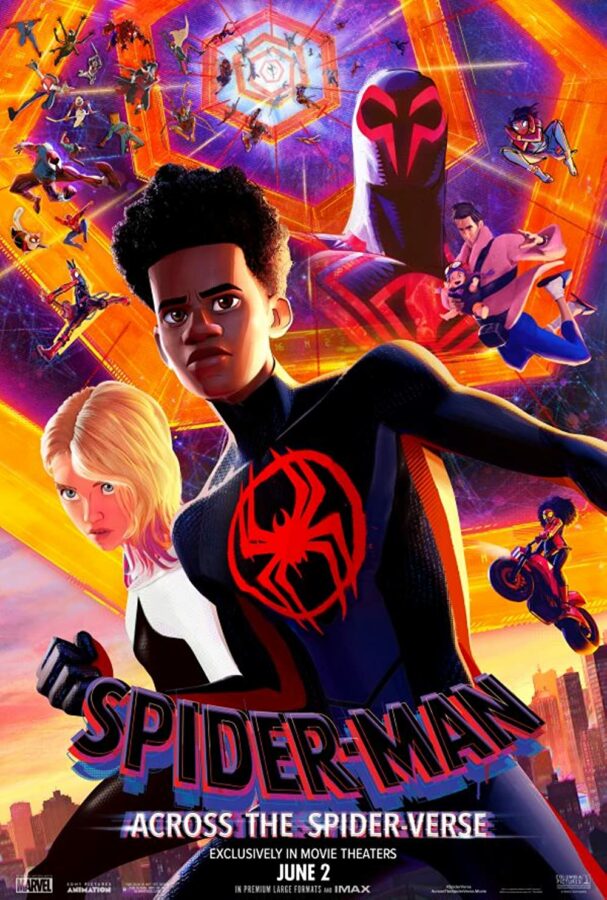Casual moviegoers and critics alike have always generated discourse surrounding superhero movies and animated movies-and it’s only grown in recent years.
As both vie for recognition beyond just being “just for kids” or “just for comic book nerds” many creators have expressed their unrelenting dedication to their art.
After winning the 2022 Oscar for Best Animated Feature for Guillermo Del Toro’s Pinocchio, Del Toro made it very adamant, much to the delight of animation fans that, “Animation is cinema. Animation is not a genre. Animation is ready to be taken to the next step. We are all ready for it.”
Superhero fans have also remained defensive of their beloved franchises despite the criticism surrounding recent movies from Marvel and DC.
The two studio’s current lineups look promising however, with The Marvels releasing later this year from Marvel and Blue Beetle and The Flash releasing from DC.
Despite this continuous discussion full of varying opinions and demands from fans, many have come to the consensus that Sony Animation’s Spider-Man: Into The Spiderverse was a game-changer for both animation and superhero films.
The film’s comic book-like textures, rapid pacing, and severance from the traditional “Pixar look” that so many animation studios aimed to replicate offered fans a bold and refreshing Spider-Man story while surprising many with its adventurous approach to animation.
The film won the Best Animated Feature award at the 2019 Oscars, breaking Disney’s six-year streak of winning the award, proving that the film’s audacious risks paid off.
With the massive amount of praise attached to the film, it was no surprise that the Into The Spiderverse’s sequel Spider-Man: Across The Spiderverse was projected to be one of the most anticipated and profitable animated films of the year.
The film now stands as Sony Animation’s highest-grossing film of all time grossing over $225 million domestically and over $313 million globally. Spiderverse’s domestic weekend opening brought in $120.6 million which surpassed studio expectations.
In addition to more financial success than the original film, many critics have claimed that Across The Spiderverse is better than Into The Spiderverse although some are disappointed with its cliffhanger ending.
Other complaints have been made about the film’s audio which seemed to have a “turned-down” effect at certain theaters. Executive Prouder Phil Lord acknowledged to audiences that there was an issue with the sound mixing.
Lord responded on Twitter encouraging fans to, “ask someone to check that the theater volume is set at reference (7)! If it sounds a bit quiet, invite them to turn it up a touch to 7.5! If they give you flack… tell them we said it was okay.”
The audio isn’t too much of a distraction, however, as the film inundates its viewers with so many frames of color, vibrant textures, and smooth action that we’d expect from a Spiderverse film.
Picking up from where the last film left off, Miles Morales (Shameik Moore) is struggling to balance life as the son of parents with high expectations and of course, Brooklyn’s one and only Spider-Man.
As tensions rise in his family, Miles is interdimensionally visited by Gwen Stacy (Hailee Steinfeld) who, unbeknownst to him, is facing her own struggles with her dad, leaving her dimension behind to become a part of an elite spider squad run by Miguel O’Hara (Oscar Isaac), known as Spider-Man 2099.
After impulsively following Gwen across multiple dimensions and meeting her new spider friends as well as reconnecting with familiar faces, Miles learns of a horrible event set to occur, leading him to question what it means to be Spider-Man.
The film’s narrative is not only conveyed but completely represented by its visuals as striking moments integral to the story are strengthened by the accompanying animation, featuring constant movement and diverse styles that will never leave the eyes unengaged.
Moore and Steinfeld give stellar performances and add even more emotional depth to their characters than before. Daniel Kaluuya and Karan Soni also give riveting, fresh performances as newcomers to the expansive universe.
Even though the film ends on an abrupt note, there’s not much more to be desired except for the concluding film which is set to release in March of 2024.
Through brilliant casting, exceptional animation, meticulous attention to detail, and an obvious love for the Spider-Man franchise, Spiderverse dares to set the bar even higher when it comes to animated superhero films proving that anyone can wear the mask; and any type of film can be exemplary.

